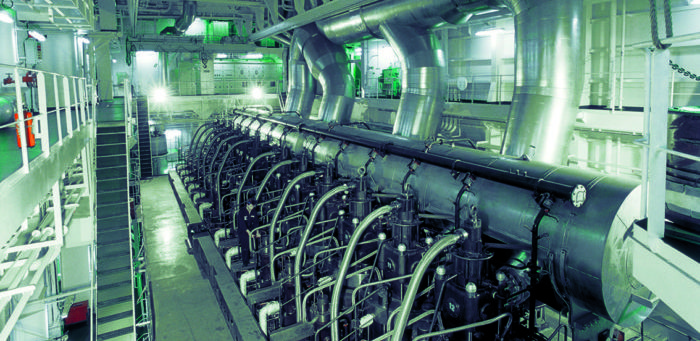DNV GL has issued statutory alert to remind that IMO NOx Tier III requirements will take effect in the North American and US Caribbean Emission Control Areas (ECAs) from January 1st 2016. The new requirements are applicable to all vessels with keel-laying on or after January 1st 2016 with an engine output of ≥130kW. DNV GL highlights that it is important to be aware of how to prove compliance and how the requirements will be enforced.
When and where
IMO NOx Tier III requirements will take effect in North American and US Caribbean ECAs from January 1st 2016 for vessels with a keel-laying date on or after January 1st 2016 and an engine output of ≥130kW.
If other ECAs for NOx are implemented, the NOx Tier III requirements will not be retroactive. That is, if new NOx ECAs take effect (e.g. for the North Sea and Baltic Sea), the Tier III emission limits become applicable to vessels with keel-laying as of the date the new NOx ECAs go into effect.
Technical solutions for low NOx emissions
To go from the current NOx Tier II limits down to the NOx Tier III limits as defined in IMO MARPOL Annex VI regulation 13, NOx emissions must be reduced by approximately 75%. This means that tuning the engine is not enough. Several technologies, or a combination of technologies, can reduce emissions to Tier III levels and technologies that don’t have NOx emission like batteries and fuel cells are not a part of the regulation. This list is a selection of the possible technologies
- Dual fuel engines (DF)/pure gas engines
- Selective catalytic reduction (SCR)
- Exhaust gas recirculation (EGR)
- Batteries/hybrid. Also in combination with NOx reduction technologies
- Fuel cells/fuel cell hybrid systems. Also in combination with NOx reduction technologies
NOx Tier III Certification
Seagoing ships with diesel engines must comply with IMO MARPOL Annex VI regulation 13 and the NOx Technical Code 2008. An Engine International Air Pollution Prevention Certificate (EIAPP certificate) is required for each engine. No matter what technology is used to fulfil the requirements, the same testing requirements and NOx emission limits must be applied. The EIAPP certificate is proof that the engine system, including the NOx-reduction technology, is compliant.
EIAPP certificates are issued by recognized organizations on behalf of the respective flag. Engine manufacturers/ responsible applicants are not required to obtain EIAPP certification from the same classification society that classifies the ship the engine is going to be installed on.
DNV GL is currently working with several customers on approval of their different solutions for complying with the IMO NOx Tier III requirements. SCR is the leading solution, and DNV GL has already approved five makers for SCRs for four-stroke application with more in the pipeline, including two-stroke applications.
Enforcement
The United States Coast Guard (USCG) and the United States Environmental Protection Agency (EPA) cooperate in the implementation of IMO MARPOL Annex VI. In practice, the USCG is responsible for Port State control, and inspects vessels to determine compliance with MARPOL Annex VI, including NOx Tier III requirements (www.epa.gov).
The EIAPP certificate and NOx technical file shall be stored on board as proof of compliance. If a DF is used, the NOx changeover procedure is to be included in the NOx technical file.
To the best of our knowledge, the penalties for failing to comply with NOx Tier III follow the same principles as other instances of non-compliance with the MARPOL Annex VI, and will vary according to the severity. The USCG has indicated that the penalties for failing to comply with NOx Tier III will be $25,000 per violation.
Recommendations
You need to be prepared to comply with the IMO NOx Tier III requirements if you plan to operate in the North American and US Caribbean ECAs. Understanding the implications of different technological solutions for reducing NOx emissions and how to fulfil the requirements can be key factors in ensuring the success of your newbuilding plans. DNV GL can assist you with EIAPP certification and by providing advice on technical solutions.
Also read related article:
Upcoming environmental regulations for emissions to air – IMO NOx Tier III
Source: DNV GL































































